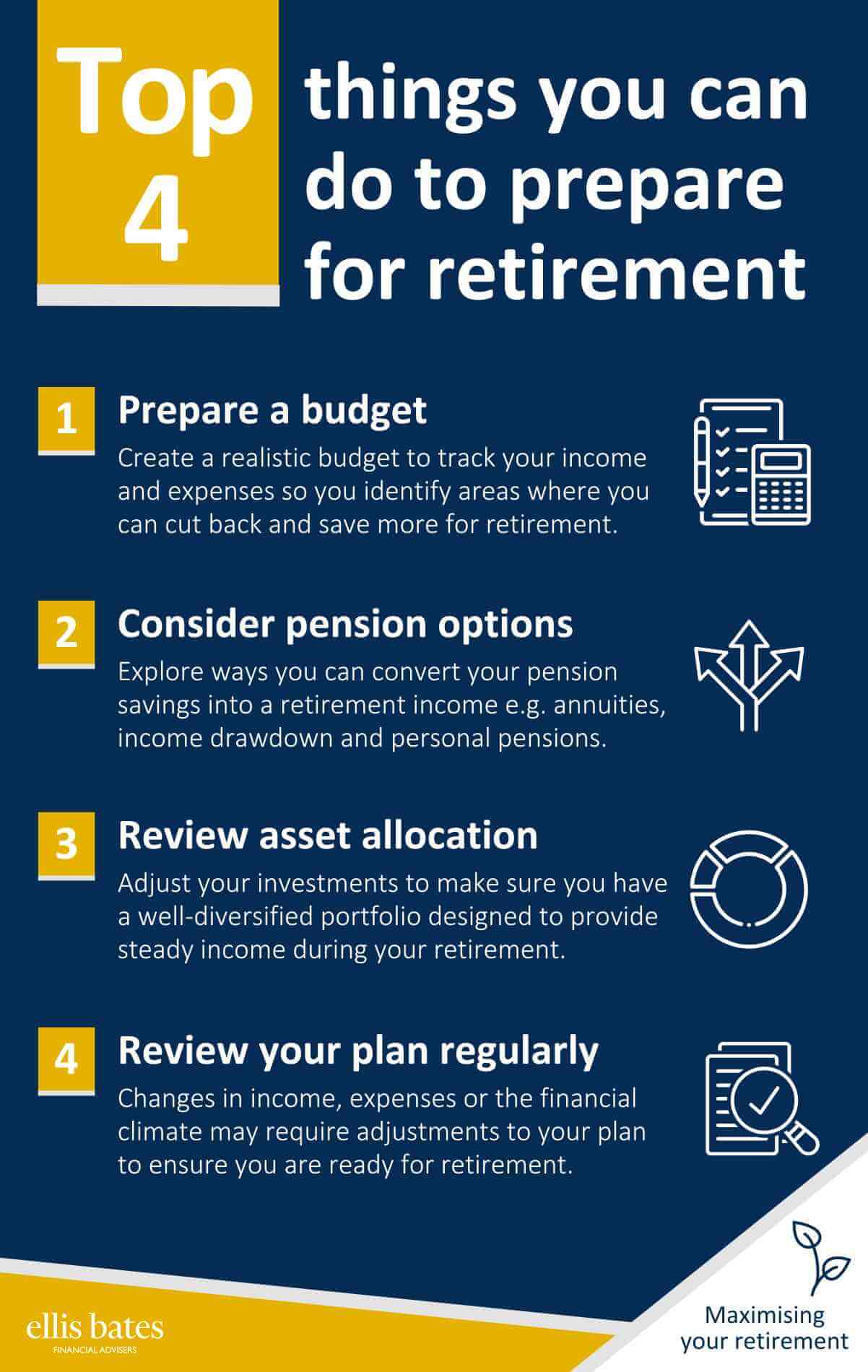Take stock of your financial health in 2025
https://www.ellisbates.com/wp-content/uploads/2025/01/Picture1nhoihoi.png 771 303 Jess Easby Jess Easby https://secure.gravatar.com/avatar/70f816837c455030814d46a740cfc12d89893aaf8cbf8c8f8f59387d7b30ac08?s=96&d=mm&r=gStart 2025 with a New Year’s wealth check

A yearly financial check-up is vital to ensuring your money works as effectively as possible. The beginning of 2025 offers an ideal opportunity to take stock of your financial health, setting the tone for a prosperous and secure year ahead.
Even if you have a strong financial plan, life rarely stands still. Changes such as a promotion, a new mortgage or a shift in family circumstances could mean your plan no longer fits your needs. Additionally, financial law and regulation updates might impact your investments or tax allowances, making it crucial to revisit your strategy. A New Year’s wealth check helps you stay on top of these changes and provides clarity and confidence in your decision making, preparing you for whatever lies ahead.
PORTFOLIOS VULNERABLE TO MARKET FLUCTUATIONS
A great deal can change over a year, and regular reviews are necessary for your investment portfolio to maintain its balance and effectiveness. Some investments could start underperforming due to market shifts or company-specific issues, while others may outperform expectations, presenting you with opportunities to take profits and reinvest strategically. Without attentive management, you risk missing these critical moments, which could compromise your portfolio’s overall performance.
Overexposure to specific companies, sectors or geographical markets can also introduce significant risks. A lack of diversification might leave your portfolio vulnerable to market fluctuations or economic downturns in focused areas. Regularly reviewing your investments ensures they remain appropriately diversified and continue to reflect your financial goals, risk tolerance and timelines for achieving them.
REVIEWING YOUR INSURANCE POLICIES
Insurance policies are another critical area in your New Year’s wealth check. These include cover for income protection, life insurance and critical illness. Regular reviews are vital, especially if your personal circumstances have changed. A pay rise, for instance, might require you to increase the income you are protecting. Similarly, a larger or smaller mortgage could mean adjusting your life insurance cover.
Keeping these policies up to date ensures that your family is financially protected if illness or misfortune strikes. It’s also worth checking whether you’re overpaying for certain types of cover. A professional review can help you balance adequate protection and cost efficiency.
PREPARING FOR A SECURE RETIREMENT
A New Year’s wealth check can highlight your readiness for a fulfilling and comfortable retirement. If your pension savings are falling short, now may be the time to address this gap. By using your pension Annual Allowance, you can maximise your tax relief.
In the tax year (2024/25), the standard allowance is £60,000 annually. This covers the amount you can pay into your defined contribution pensions and receive tax relief, including your contributions, your employer’s and anyone else who might pay in on your behalf. The benefit of this relief, combined with the effects of compounded investment growth, can significantly increase your retirement pot over time.
Additionally, the start of 2025 is an excellent opportunity to ensure you are taking advantage of other tax-efficient options. You can invest up to £20,000 annually in Individual Savings Accounts (ISAs) for tax-efficient growth and income. Junior ISAs allow families to invest £9,000 annually per child, which could build into a substantial fund for university or a first-home deposit. Using allowances like these, Capital Gains Tax exemptions and personal savings allowances can help you manage your wealth more efficiently.
TACKLING FAMILY AND FINANCIAL PRIORITIES
Balancing family priorities with long-term savings often feels like a juggling act. You might be saving for school fees, giving your children a financial boost onto the property ladder or ensuring you’re putting enough aside for your retirement. At the same time, you could support elderly relatives as their health declines, adding strain to your household budget.
Even with a healthy income, managing competing priorities can be challenging. That’s why a carefully constructed financial plan is crucial. It should address your current needs and adapt to them as they evolve over time, helping you maintain stability through life’s twists and turns.
WHY PROFESSIONAL ADVICE MATTERS
Many individuals find the intricacies of rebalancing investments, planning tax-efficient strategies and developing a resilient retirement fund
overwhelming. That’s where professional financial advisers come into play. We can tailor an individual plan around your unique circumstances, reviewing it regularly to ensure it remains aligned with your personal goals, changes in legislation and the economic climate.
Our professional guidance can make the difference between simply managing your finances and genuinely mastering them. With our advice, you will gain clarity on your financial options and the confidence to make informed decisions.
LOOKING TO TAKE CONTROL OF YOUR FINANCIAL FUTURE WITH A NEW YEAR’S WEALTH CHECK?
The start of 2025 presents the perfect opportunity to assess your financial health and put plans in motion to achieve your goals. Whether building your retirement fund, supporting your family or investing tax-efficiently, take the time to prioritise your financial wellbeing. For
tailored professional advice and a personalised financial review, contact us today.




 Actionable steps to ensure you’re progressing steadily toward financial stability and independence.
Actionable steps to ensure you’re progressing steadily toward financial stability and independence.







